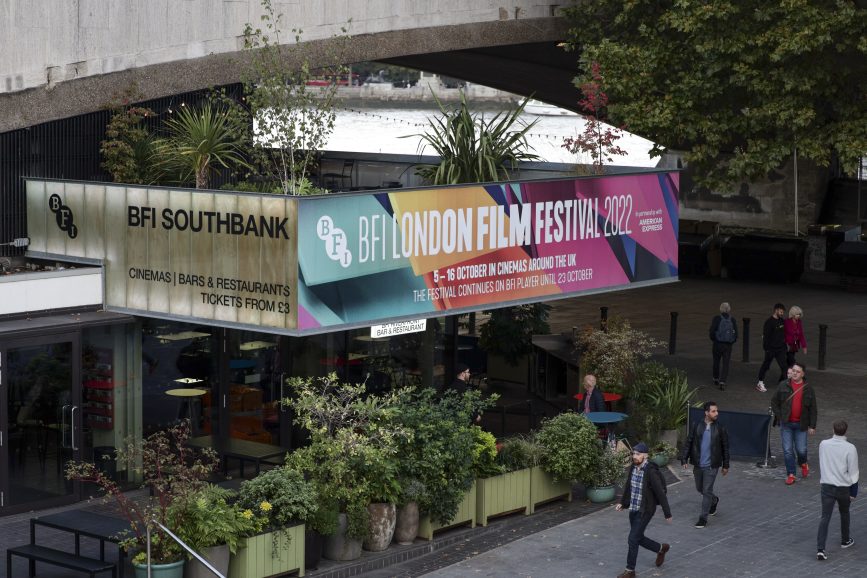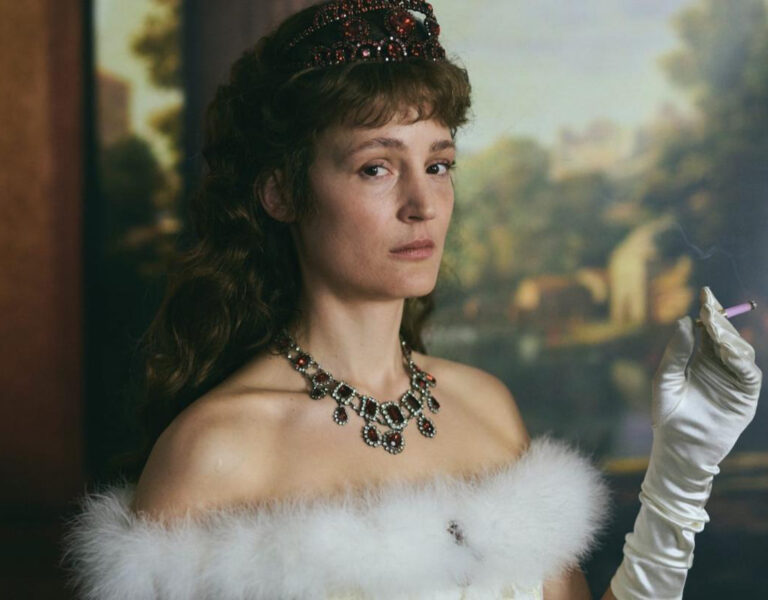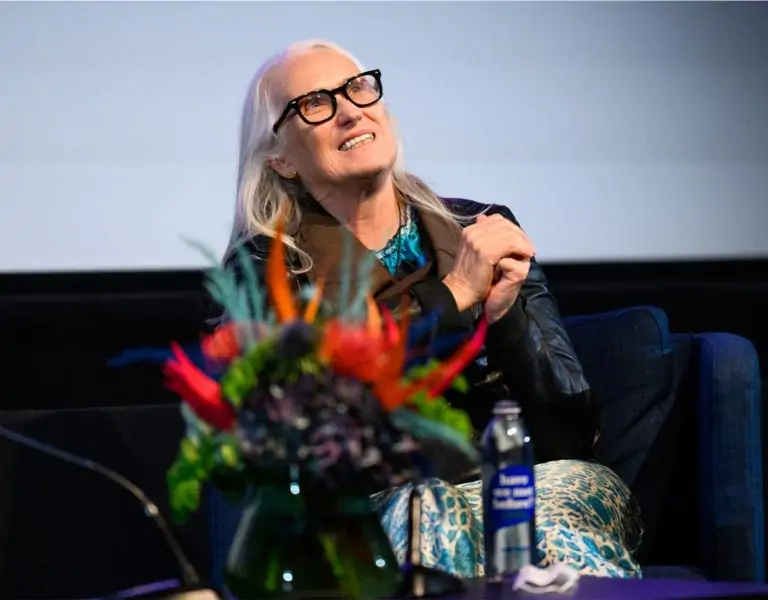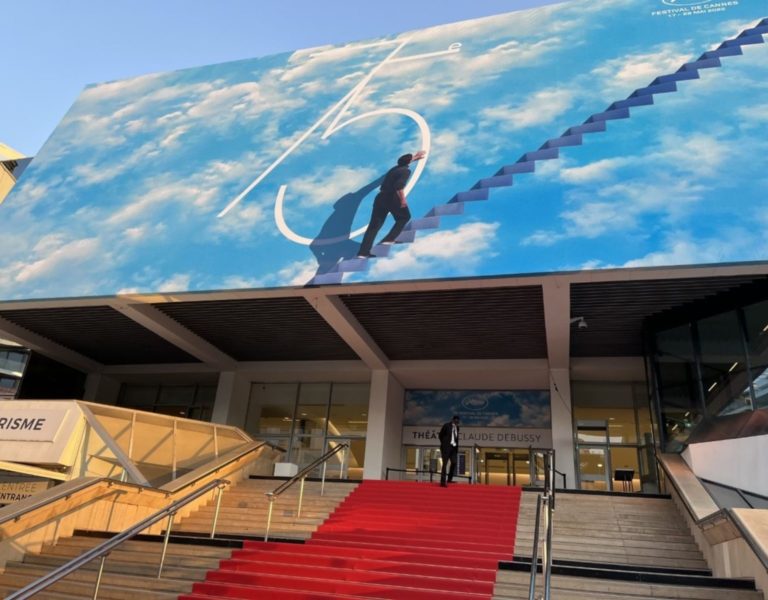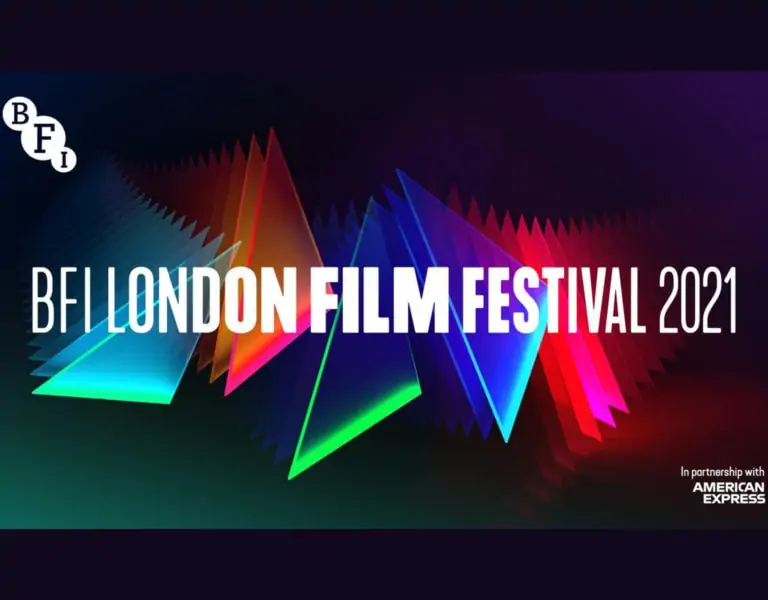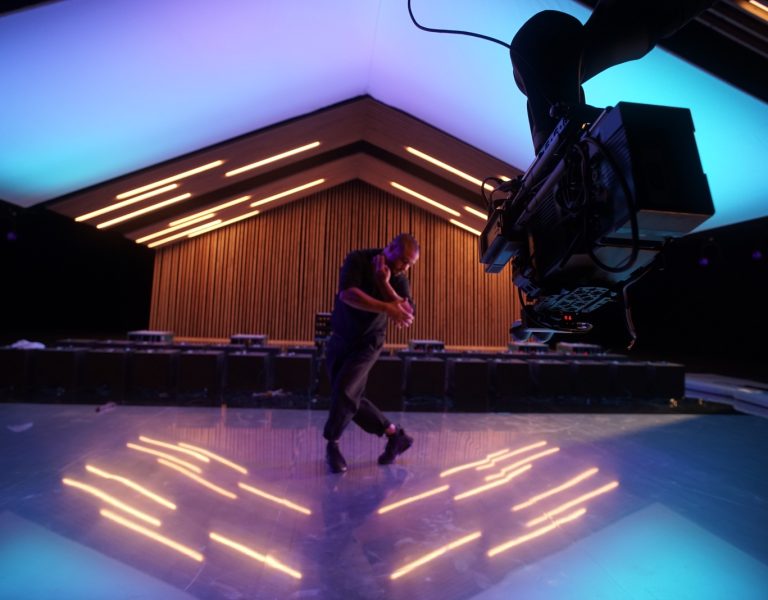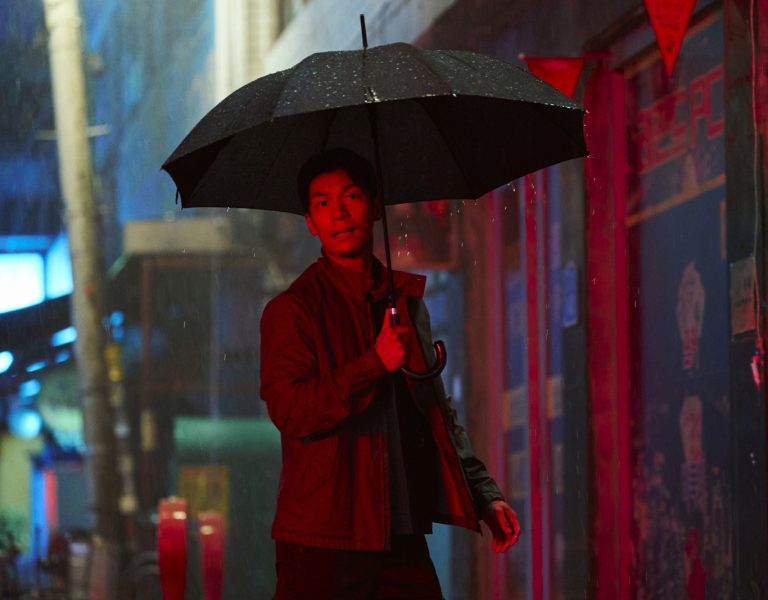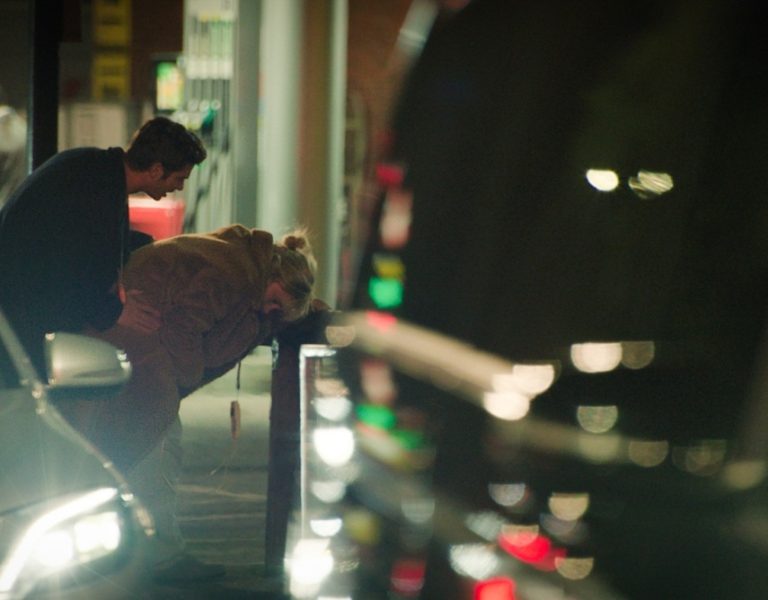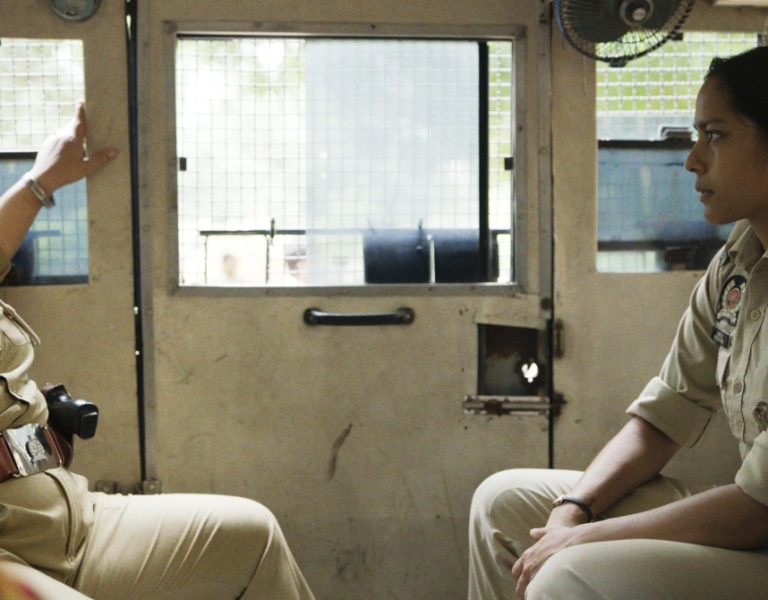PRIDE OF BRITAIN
In October, some of the industry’s brightest lights converged on London’s cultural heart for 12 sensational days of storytelling.
This year’s BFI London Film Festival marked the final edition for artistic director Tricia Tuttle. After steering the UK’s most prestigious festival through the turbulence of the pandemic era, Tuttle certainly said goodbye to the job in some style. With a huge array of auteurs bringing their films to Britain’s capital, including Darren Aronofsky (The Whale), Joanna Hogg (The Eternal Daughter) and Sarah Polley (Women Talking), there were some genuinely touching moments.
Perhaps the biggest was the world premiere of Guillermo del Toro’s Pinocchio, the first animated feature from the Mexican maestro behind The Shape of Water (2017). The Netflix-backed stop-motion animation, which premiered one day after the director’s mother passed away, proved a striking twist on the classic fable about a wooden boy. Visually, the film was perfectly realised by Frank Passingham, previously the DP on the beloved Laika animation Kubo and the Two Strings (2016) and Aardman hit Chicken Run (2000).
Another film receiving its world unveiling was Creature from the Oscar-winning filmmaker Asif Kapadia (Amy, Senna). Filming the English National Ballet production of the stunning show created and choreographed by Akram Khan, Kapadia found himself in new terrain here compared to his earlier archive-driven documentaries. With this beguiling piece led by the dancer Jeffrey Cirio, it was a chance to watch this extraordinary production in the sort of immersive detail that even the best seats in the house don’t afford.
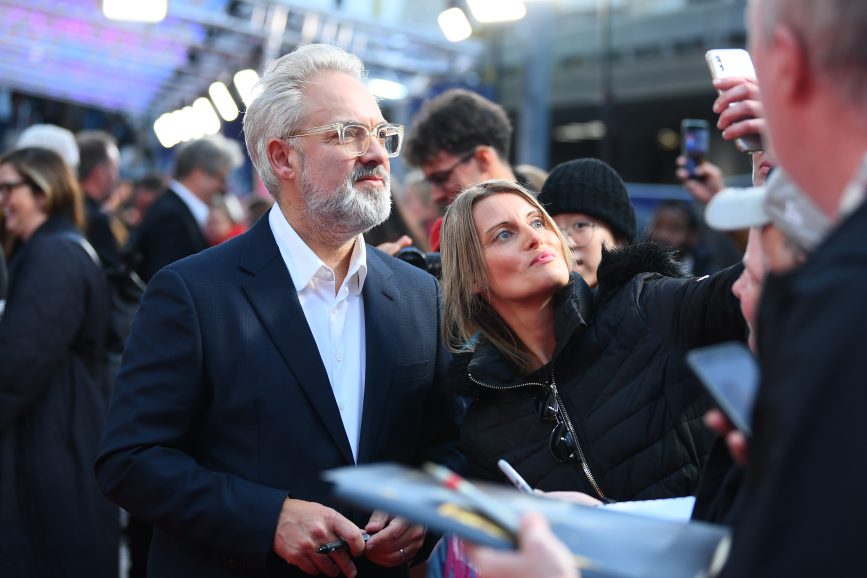
Dance on film remains rare – the last auteur to go down that route was Wim Wenders with his 2011 3D film Pina. Here, Kapadia also took to the stage at the festival for ‘When Dance Meets Film’, part of the LFF Connects Series. He was joined by Khan, editor Sylvie Landra ACE and the film’s DP, Daniel Landin BSC, whose work includes Jonathan Glazer’s remarkable sci-fi Under the Skin (2013), as they unpacked this Frankenstein-inspired work for the attending audience.
Of the British films in the Gala section, Sam Mendes’ Empire of Light drew the most attention. Set in 1980-1, this drama starring Olivia Colman as the troubled duty manager of a beautiful cinema was shot in Margate. “If you want your place to look good, you gotta hire Roger Deakins,” Mendes told me during the festival. Too true: the esteemed cinematographer, who previously shot Mendes’ visceral WW1 film 1917, found sheer beauty in the wintry skies, wide open beaches, and faded grandeur of the Kent coastal town.
This year, the prestigious Screen Talks section of the festival, featuring in-depth Q&As with actors and directors, included a late addition: Jennifer Lawrence. The actress was at the festival to unveil her new Apple TV+ movie Causeway, a film directed by Lila Neugebauer and shot by Diego García, whose eclectic CV ranges from Apichatpong Weerasethakul (2015’s Cemetery of Splendour) to Paul Dano (2018’s Wildlife).
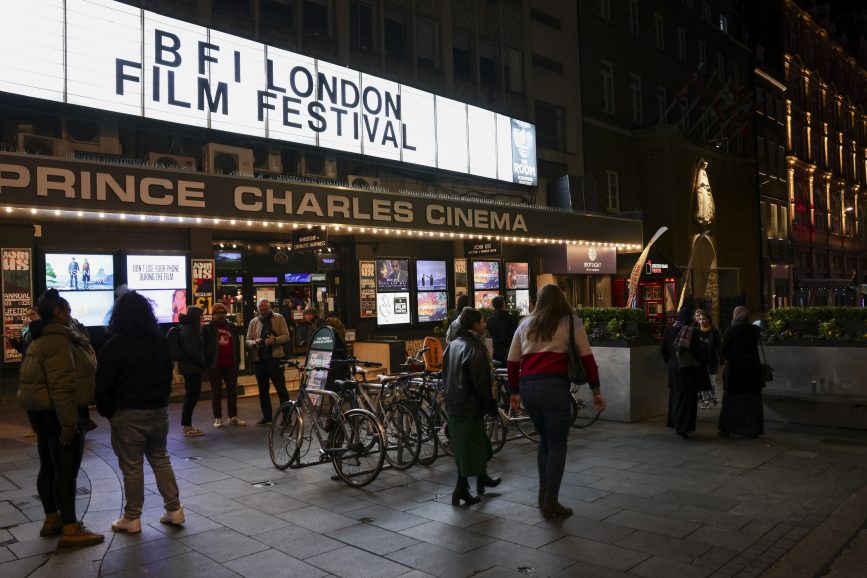
A story about a female war veteran returning from Afghanistan with PTSD, the film marked the first production for Lawrence’s company Excellent Cadaver, although it felt like a call-back to her early years on films like Debra Granik’s Winter’s Bone (2010). As she explained at the Screen Talk, she felt it “serendipitous to have the first film of my production company be an independent, that’s where I got my roots and that’s what I can attribute my entire career to”.
Among the festival’s engaging panels, meanwhile, was ‘Sold Out! Moving your audience from their sofa to the big screen’, a topic that concerns the entire industry in a post-pandemic world. Guests on the panel included Jake Garriock, Curzon’s head of distribution strategy and group publicity, and Melanie Iredale, director at Birds’ Eye View, in a discussion that asked how cinemas, ailing after COVID lockdowns, can bring back old audiences and attract new ones. Questioning the role of film festivals – and just how crucial they now are in this new world order – it addressed some hugely philosophical and practical concerns.
While LFF audiences were invited to buy tickets for this and other live events, journalists were offered the chance to meet filmmakers at the so-called ‘afternoon teas’, a tradition of the festival held at the partner hotel, the Mayfair. A chance to sit down head-to-head with directors, it’s remained a popular institution since it began, summing up the eclectic nature of the festival, where you could meet animators, documentarians, and feature filmmakers in one lively, civilised encounter.
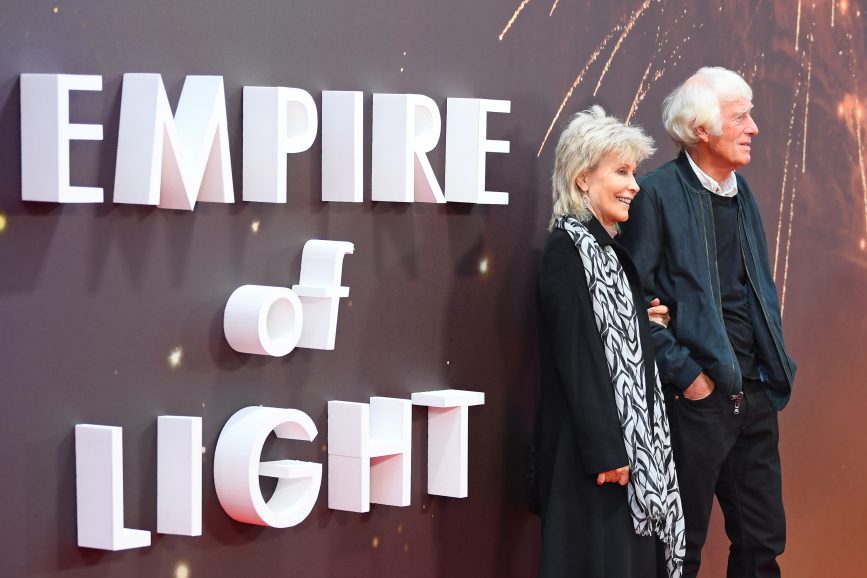
Among the attendees this year was Lisa Selby, whose film Blue Bag Life was receiving its world premiere (and claimed the Audience Award at the close of the festival). Assembled from footage shot over years of her own life, this documentary portrait chronicled Selby’s life, one touched by drug addiction. An overwhelmingly positive story – you might call it a journey from being a daughter to a mother – Selby was joined by her collaborators on the project Rebecca Hirsch Lloyd-Evans, Alex Fry, Natasha Dack-Ojumu and Josie Cole, a powerful collective who came together to bring this remarkable work to fruition.
Blue Bag Life wasn’t the only prize-winner. In the Official Competition selection, the jury awarded Best Film to Marie Kreutzer’s Corsage, with the jury commending Vicky Krieps (Phantom Thread) as Empress Elisabeth of Austria, who ruled over the country in the late 1800s. The film was shot by Judith Kaufmann, the hugely experienced German-born cinematographer who does a fine job in capturing both the handsome requirements of a period drama and the more anarchic stylings of Krieps’ performance. Set to be released in the UK at the end of December, it’ll be a fine way to usher in the new year.
